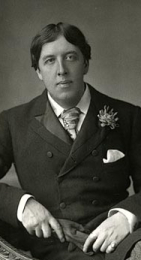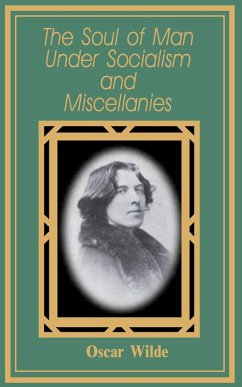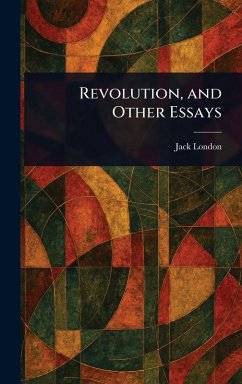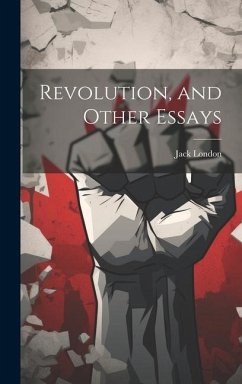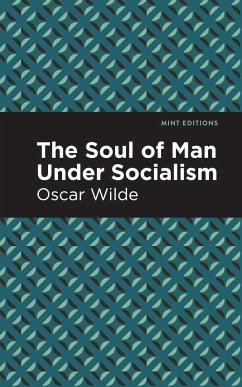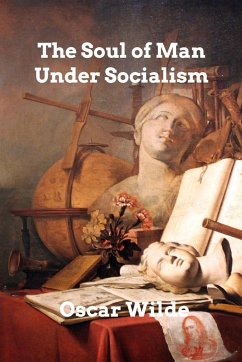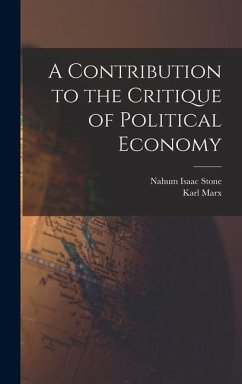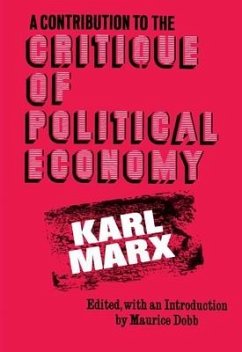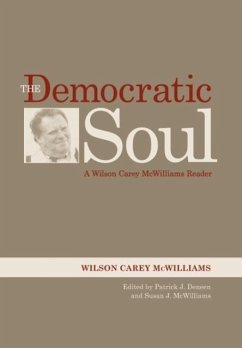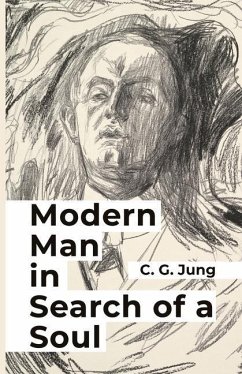
The Soul of Man
an essay by Oscar Wilde in which he expounds a libertarian socialist worldview and a critique of charity.The writing of "The Soul of Man" followed Wilde's conversion to anarchist philosophy
Versandkostenfrei!
Versandfertig in 1-2 Wochen
16,99 €
inkl. MwSt.
Weitere Ausgaben:

PAYBACK Punkte
8 °P sammeln!
The Soul of Man By Oscar Wilde"The Soul of Man under Socialism" is an 1891 essay by Oscar Wilde in which he expounds a libertarian socialist worldview and a critique of charity.The writing of "The Soul of Man" followed Wilde's conversion to anarchist philosophy, following his reading of the works of Peter Kropotkin.In "The Soul of Man" Wilde argues that, under capitalism, "the majority of people spoil their lives by an unhealthy and exaggerated altruism-are forced, indeed, so to spoil them": instead of realising their true talents, they waste their time solving the social problems caused by ca...
The Soul of Man By Oscar Wilde"The Soul of Man under Socialism" is an 1891 essay by Oscar Wilde in which he expounds a libertarian socialist worldview and a critique of charity.The writing of "The Soul of Man" followed Wilde's conversion to anarchist philosophy, following his reading of the works of Peter Kropotkin.In "The Soul of Man" Wilde argues that, under capitalism, "the majority of people spoil their lives by an unhealthy and exaggerated altruism-are forced, indeed, so to spoil them": instead of realising their true talents, they waste their time solving the social problems caused by capitalism, without taking their common cause away. Thus, caring people "seriously and very sentimentally set themselves to the task of remedying the evils that they see in poverty but their remedies do not cure the disease: they merely prolong it" because, as Wilde puts it, "the proper aim is to try and reconstruct society on such a basis that poverty will be impossible."Wilde did not see kindness or altruism per se as a problem what worried him was its misapplication in a way which leaves unaddressed the roots of the problem: "the altruistic virtues have really prevented the carrying out of this aim. Just as the worst slave-owners were those who were kind to their slaves, and so prevented the horror of the system being realised by those who suffered from it, and understood by those who contemplated it, so, in the present state of things in England, the people who do most harm are the people who try to do most good" while preserving the system.Wilde's deepest concern was with man's soul when he analysed poverty and its causes and effects in "The Soul of Man under Socialism" it was not simply the material well-being of the poor that distressed him, but how society does not allow them to reach a form of self-understanding and enlightenment. He adopted Jesus of Nazareth as a symbol of the supreme individualist. Wilde advocated socialism, which, he argued, "will be of value simply because it will lead to individualism" and "substituting cooperation for competition will restore society to its proper condition ... and ensure material well being for each member of the community."Wilde examined the political conditions necessary for full self-development and devotion to art, arguing, "Art is individualism, and individualism is a disturbing and disintegrating force. There lies its immense value. For what it seeks to disturb is monotony of type, slavery of custom, tyranny of habit, and the reduction of man to the level of a machine."




